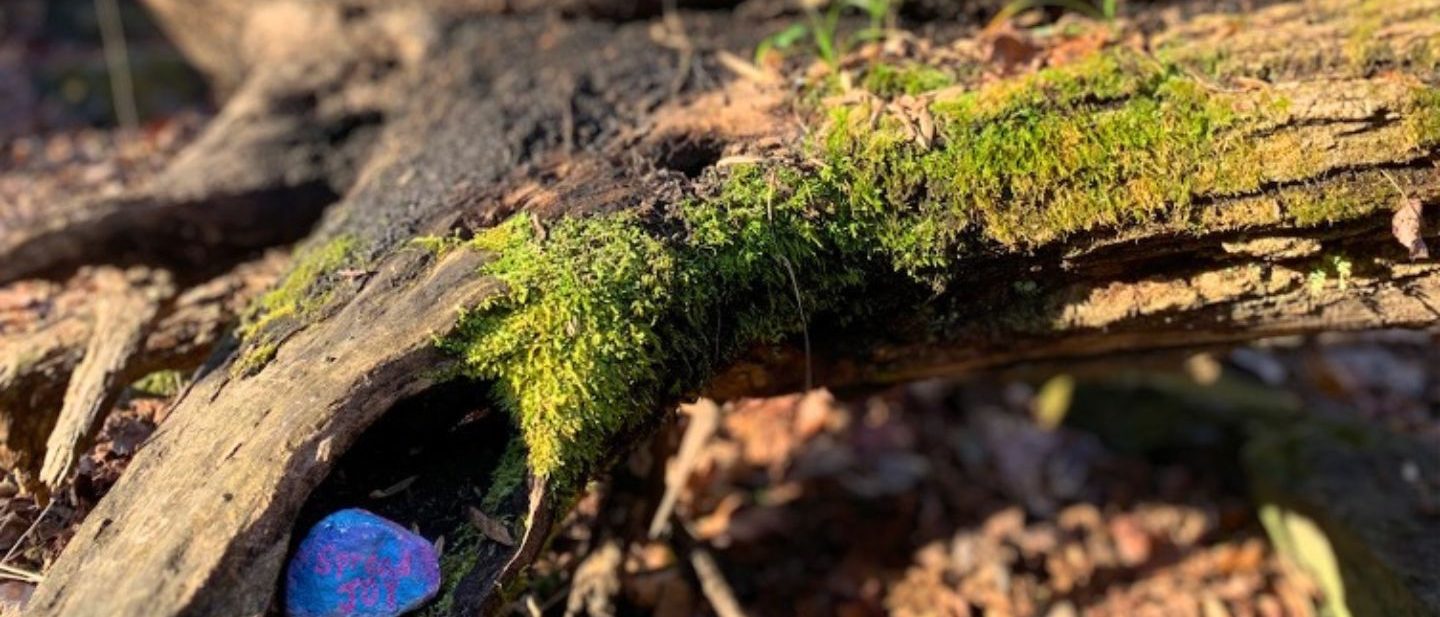
Jessie Croteau is a fourth year PhD student and undergraduate coordinator focusing on environmental political theory in the KSAS Department of Political Science. The focus of her dissertation is to create an eco-philosophy and ethics which affirms and celebrates declines such as decomposition, deterioration, and disintegration.
To conduct her research, Jessie analyzes and completes in-depth reviews of literature — focusing on works of theorists and philosophers. Additionally, Jessie studies art of various mediums and artists from around the world, including local Baltimore artist Jordan Tierney and Swiss artist Méret Oppenheim. Jessie also studies buildings and the nature of their deterioration, such as old textile mills or churches, often within or adjacent to Baltimore.
We sat down with Jessie to learn more about her research:
Describe the intention of your research as it relates to ecology and the environment.
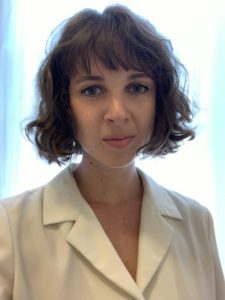
“My research looks into the ways in which durability can be dangerous with things like plastics, and how declines can be beneficial with things like compost and architectural deterioration,” says Jessie.
“The intention of my research began from worries about waste,” she says. “I saw waste piling up, especially in areas where marginalized peoples live, or in more natural spaces, and became increasingly concerned with all of the things which refuse to decompose and the harms they created.”
A politics which only emphasizes conservation may not allow for transformations to more ecological futures.”
“While it’s important to emphasize preservation, when shorelines are eroding, habitats are being destroyed, and species being forced into extinction, I couldn’t help but think about all of the ways in which preservation can also be harmful,” says Jessie. “A politics which only emphasizes conservation may not allow for transformations to more ecological futures.”
How did you become interested in this research?
Jessie has been involved in politics and addressing environmental issues since middle school, she says. During her undergraduate education at Colorado State University, she studied environmental political science.
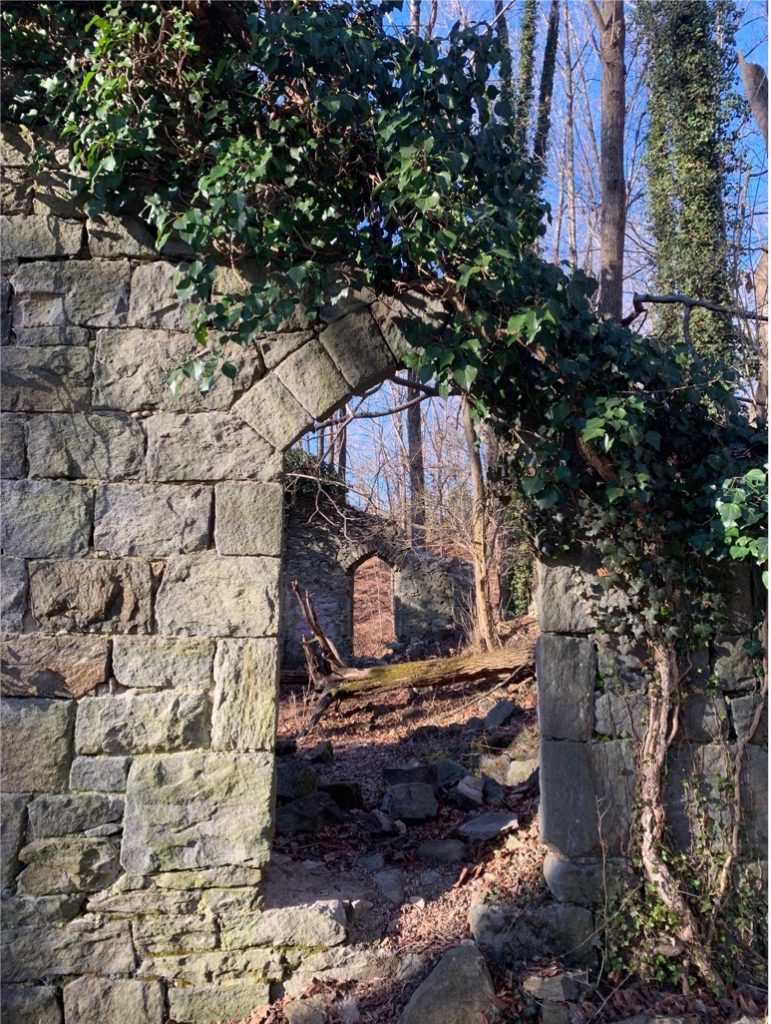
After her undergraduate experience, Jessie worked for the United Nations on various waste disposal and diversion projects. Specifically, she managed the disposal of unwanted office materials from an old building that the UN moved out of, as well as the waste generated at the UN headquarters.
Jessie also took a gap year to travel. “I noticed a lot of the economic connections between where waste was piling up, where it was visible, and where it was hidden away,” she says.
Each of these experiences, Jessie says, allowed her to interact with waste and its management in different ways and inspired her interest in further exploration at graduate school.
“I knew in coming [to JHU] that I wanted to work with waste,” says Jessie. After spending time in the political science department and JHU community, Jessie narrowed her research focuses.
“There’s a real emphasis here on process philosophy or ideas of becoming, which I am very invested in,” says Jessie. “But it made me think about the opposite of those things: how sometimes deterioration itself can be good.”
What is the importance of environmentally-focused research?
“Environmentally- focused research is important because we need to create different relations with the world and all those living in it – human and nonhuman alike,” says Jessie.
Jessie also underscores the importance of arts and humanities in this work.
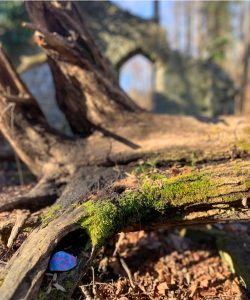
We cannot build a world we cannot imagine.”
“The ecological crisis is also a crisis of the imagination, and we cannot leave it to just the scientists in the realm of solutions,” she says. “The arts and humanities have a political and intellectual responsibility to think about world-making, and to offer imaginaries of what a more ecological future could ideally look like, and to catalyze a transformative approach.”
“We cannot build a world we cannot imagine,” says Jessie. “And so our work must also be the work of imagining new and better futures.”
What are the greater implications of your research? How could your findings contribute to a more sustainable future?
“The greater implication of my research is to try and disentangle destruction from decline,” says Jessie. “Often, these two are seen as synonymous, but I find that to be deeply troubling for a more ecological future.”
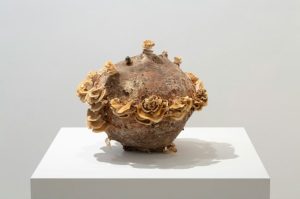
“Things like deterioration are misunderstood as passive happenings, or the idea that things just fall apart,” she says. “However, falling apart requires a great number of non-human actions, and without those efforts, things would just pile up around us, creating completely unlivable spaces.”
“Further, by thinking that decline is the same as destruction, destruction can be seen as something that just happens,” says Jessie. “Destruction doesn’t just happen. Forms of it are human-caused and a political problem that needs to be changed.”
Parsing out the benefit of decline rather than assuming it is always a problem might allow for ecological futures in line with natural cycles of growth and decomposition.”
Jessie compares the natural and beneficial decomposition of a tree in a forest to active deforestation, and highlights the differences of the two. In separating the two terms and processes, Jessie hopes to celebrate the non-human, beneficial forms of decline, and to address, politically and socially, the “pernicious” forms of destruction. Doing so may help frame more sustainable futures.
“Parsing out the benefit of decline rather than assuming it is always a problem might allow for ecological futures in line with natural cycles of growth and decomposition, while also providing a strong critique for the idea that the destruction of people and places is natural,” says Jessie.